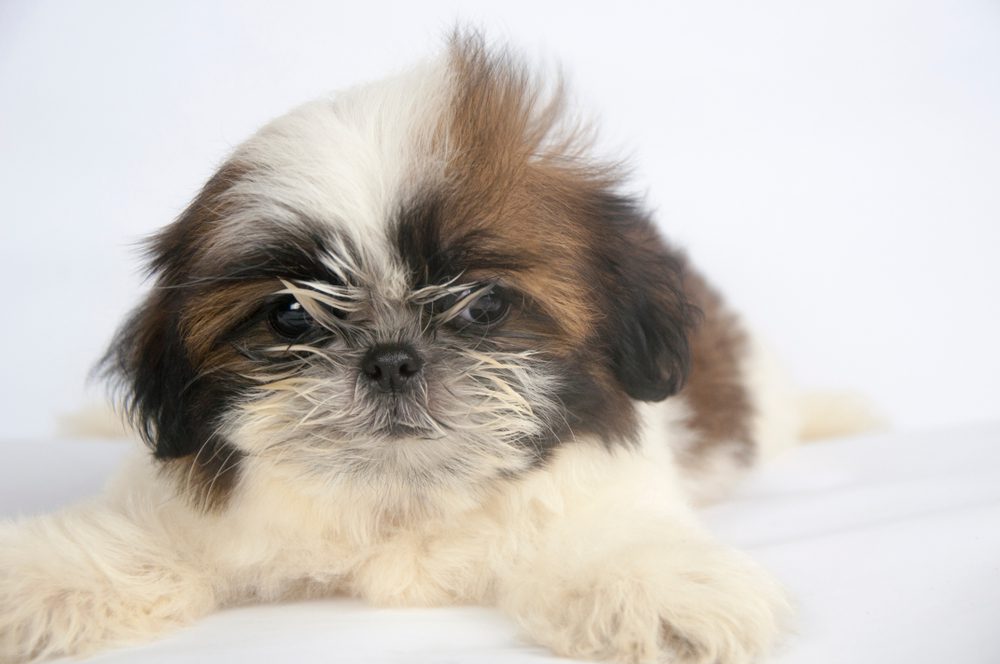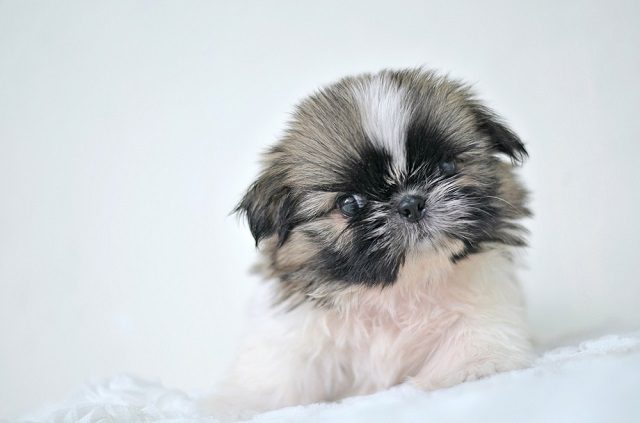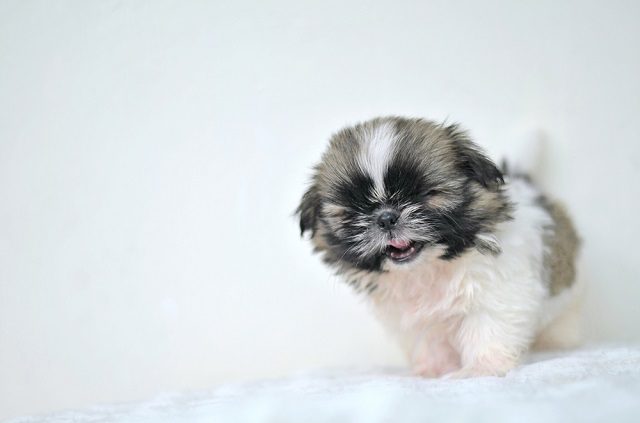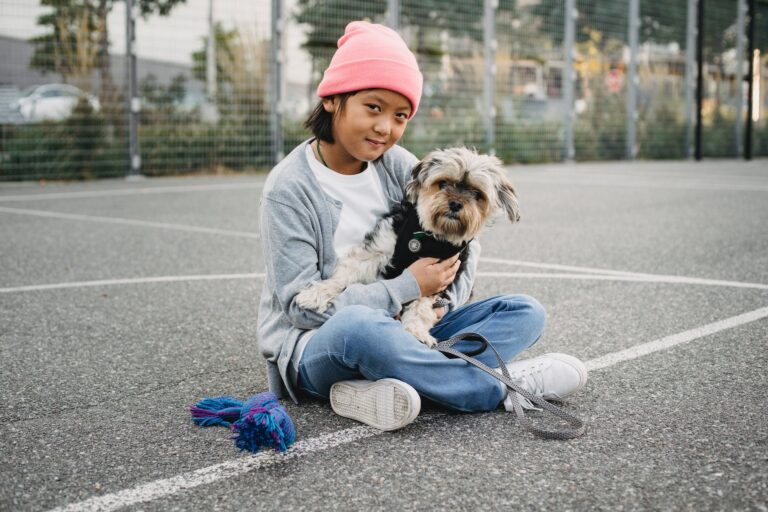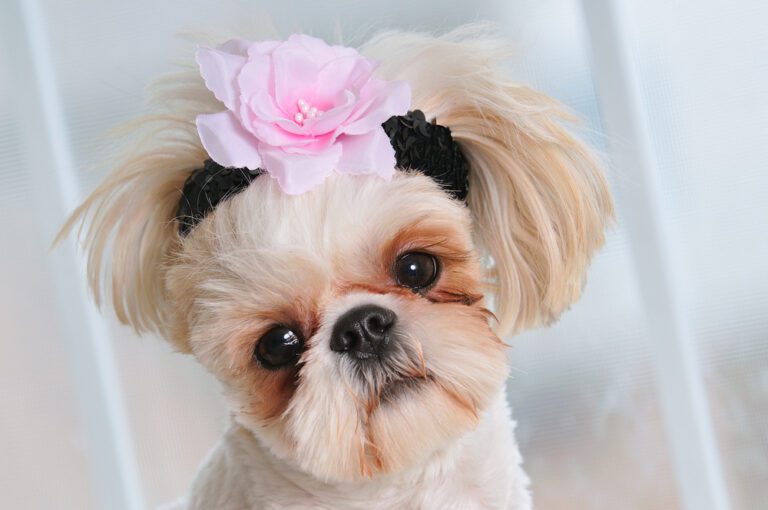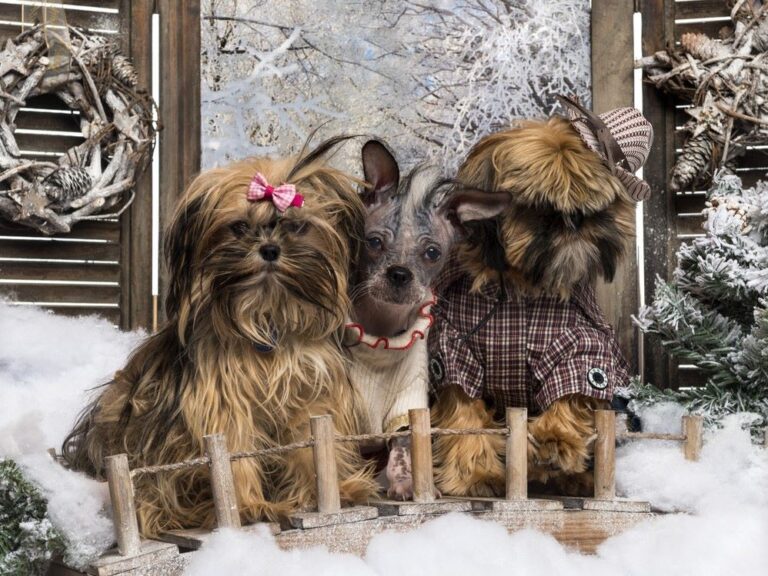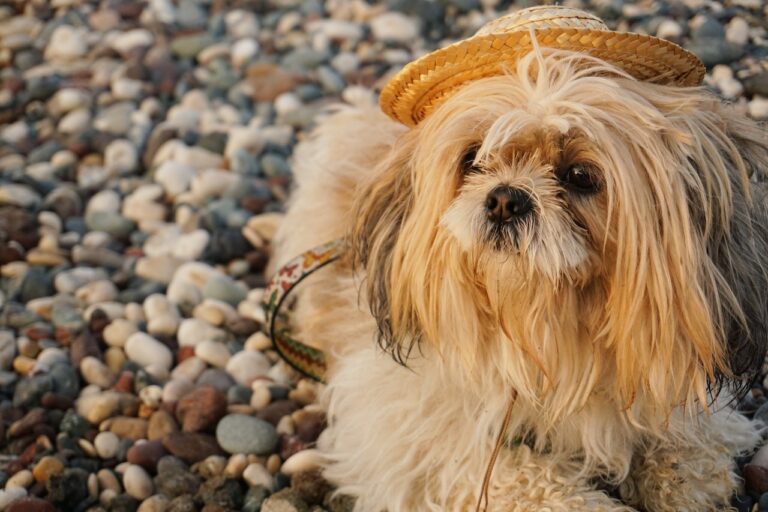The Imperial Shih Tzu: Cute or Complex?
The Imperial Shih Tzu, often dubbed the “Imperial,” embodies the essence of a regal pet in a pint-sized package. This breed variant isn’t a distinct breed but a smaller version of the standard Shih Tzu, specifically bred to fit comfortably on your lap and in your life. These dogs typically weigh less than the usual breed standard, often under 9 pounds. Despite their diminutive size, they carry the Shih Tzu breed’s grand spirit and affectionate nature.
Imperial Shih Tzus are full of surprises. Their personalities are far from small—spirited, spunky, and charismatic. Known for their strong bonds with family members, they relish being the center of attention and can often flaunt their playful antics. Yet, beneath their adorable exterior lies a bold and assertive demeanor. These tiny dogs have no qualms about standing up for themselves, displaying a confidence that belies their size. This characteristic underscores the importance of early and consistent training and socialization to mold their big personalities into well-behaved companions.
As we delve deeper into the life of an Imperial Shih Tzu, we find a dog that is not merely a lap warmer but a creature with a complex personality and diverse needs. They challenge the notion that small pets are only for show, proving that even the smallest breeds can have the heart and soul of a lion.
What Is an Imperial Shih Tzu?
The Imperial Shih Tzu, often called the “Imperial,” is a smaller version of the standard Shih Tzu breed. Here are the key details about this petite and prestigious variant:
- Size Distinction: Typically weighs less than 9 pounds, compared to the standard Shih Tzu’s 9 to 16 pounds.
- Breed Characteristics: Retains the personality and characteristics of the standard Shih Tzu, including a long, luxurious coat and a friendly demeanor.
- Origins of the Name: “Imperial” is primarily a marketing tool rather than a historical term. It suggests exclusivity, enhancing the breed’s appeal.
- Marketing Appeal: Breeders use the “Imperial” tag to attract buyers looking for something unique and potentially more elite. They capitalize on the breed’s historical prestige as pets in the Chinese imperial court.
- Historical Connection: Echoes the breed’s past as a favored pet among Chinese royalty, adding a touch of historical charm and perceived value.
- Distinct Features Compared to Standard Shih Tzus: Although they share similar coat types and colors, the Imperial’s reduced scale accentuates their facial features, making their eyes appear larger than their face. Their personality remains as lively and loving as their larger counterparts.
The Imperial Shih Tzu, while physically smaller, carries the rich heritage and endearing qualities of the standard Shih Tzu, making it a unique and cherished companion.
Temperament and Personality Traits of the Imperial Shih Tzu
The Imperial Shih Tzus are known for their delightful and engaging temperament. These dogs are incredibly affectionate and thrive on human interaction, making them excellent companions. They often exhibit a cheerful disposition and are usually very friendly, not only with their family members but also with strangers, if properly socialized. This breed is also quite alert and can be a good little watchdog, signaling when someone approaches their home.
Personality Traits
Imperial Shih Tzus are filled with personality:
- Loving and Loyal: They form strong relationships with their owners and can be quite protective of their family.
- Playful and Energetic: Despite their small size, they have a lot of energy and enjoy playtime, whether with toys or people.
- Intelligent and Trainable: They are smart and can learn commands and tricks quickly. Positive reinforcement works best with them.
- Adaptable: They adjust well to different living situations, whether it’s a small apartment or a large house, as long as they have plenty of time with their people.
Adapting to Family Life
Imperial Shih Tzus are particularly good at adapting to family life. They love being part of daily activities and are gentle and patient with children, making them fantastic family pets. However, due to their small size, interactions with very young children must be supervised to prevent accidental injury. These dogs also get along well with other pets, especially if raised with them from puppyhood.
In essence, the Imperial Shih Tzu is not just a pet; it is a companion, a playmate, and a cherished member of the family. Its adaptable and joyful nature makes it suitable for various homes and lifestyles as long as it receives the love and attention it craves. This section aims to provide a thorough understanding of Imperial Shih Tzu’s rich personality and adaptable temperament, ensuring potential owners know just how rewarding a relationship with this dog can be.
Health and Care Needs of the Imperial Shih Tzu
Common Health Issues
Imperial Shih Tzus, like many small dog breeds, are prone to certain health conditions that potential owners should be aware of:
- Dental Problems: Imperial Shih Tzus can suffer from dental issues due to their small mouths. Regular dental check-ups and cleanings are crucial.
- Respiratory Issues: Their short noses make them susceptible to breathing problems, especially in hot or stressful environments.
- Eye Conditions: Their large, prominent eyes can be prone to infections and irritations. Keeping their face clean and groomed helps prevent issues.
- Joint Problems: Small breeds often have joint issues, such as patellar luxation, where the knee joint occasionally slips out of place.
Care Requirements
Caring for an Imperial Shih Tzu involves a few key practices to ensure they live a happy and healthy life:
- Grooming: Their long, luxurious coat requires regular grooming. Daily brushing helps prevent tangles and mats, and professional grooming every 4-6 weeks keeps their coat in good condition.
- Diet: Feeding them a high-quality diet suited to small breeds is important for their overall health. Measure their food to avoid overfeeding and ensure they maintain a healthy weight.
- Exercise: Regardless of their small size, they need regular exercise to stay healthy. Short walks and play sessions help manage their energy levels and keep them fit.
Tips for Keeping Your Imperial Shih Tzu Healthy
- Regular Vet Visits: Routine check-ups can hold off health issues before they become serious.
- Mind the Heat: Be cautious in hot weather, as their small noses make them more vulnerable to heatstroke.
- Supervised Play: Always supervise to prevent injuries when playing with children or larger dogs.
Caring for an Imperial Shih Tzu means being energetic about their health and daily needs. By understanding and addressing their specific health issues and care requirements, you can ensure your furry friend leads a comfortable and fulfilling life.
Training and Socialization of the Imperial Shih Tzu
Effective Training Tips
Training an Imperial Shih Tzu requires patience and consistency. Here are some effective strategies:
- Positive Reinforcement: Reward them for good behavior with treats, praise, or playtime. This effective method builds a strong bond between you and your pet.
- Consistency is Key. Establish rules and follow them. Consistent training helps your dog understand what is expected of it.
- Short and Fun: Training sessions must be short and enjoyable. Because students’ attention spans can be short, it’s important to make learning fun.
Importance of Early Socialization
Socializing your Imperial Shih Tzu from a young age is crucial:
- Meet New People: Regularly introduce them to different people to help them become more comfortable around strangers.
- Encounter Other Pets: Safe interactions with dogs and pets can build their confidence and social skills.
- Explore New Environments: Taking them to new places can help reduce anxiety and fear of unfamiliar settings.
Challenges and Rewards of Training Small Breed Dogs
Training smaller breed dogs like the Imperial Shih Tzu comes with its own set of challenges and rewards:
Challenges:
- Stubborn Streaks: Sometimes, their cute appearance makes it tempting to let them get away with naughty behavior. Consistency is crucial.
- Sensitivity: They can be sensitive to harsh tones or negative feedback. Always use a gentle approach in training.
Rewards:
- Adaptability: Small breeds can adapt quickly in the right training environment.
- Companionship: They become wonderful, well-behaved companions as they learn and develop social skills.
Training and socializing your Imperial Shih Tzu helps manage its behavior and enhance its personality and your mutual relationship. With the right approach, the journey can be as rewarding as fun, leading to a well-adjusted and happy pet.
Conclusion
Owning an Imperial Shih Tzu is a rewarding experience filled with affection and joy. These small dogs pack a large personality, thriving on close bonds with their families. Addressing their health, grooming, and training needs can ensure a happy and fulfilling life for you and your pet. Early socialization and consistent training help them grow into sociable and confident companions. Ultimately, the Imperial Shih Tzu is a pet and a cherished family member, bringing love and excitement to your home.

